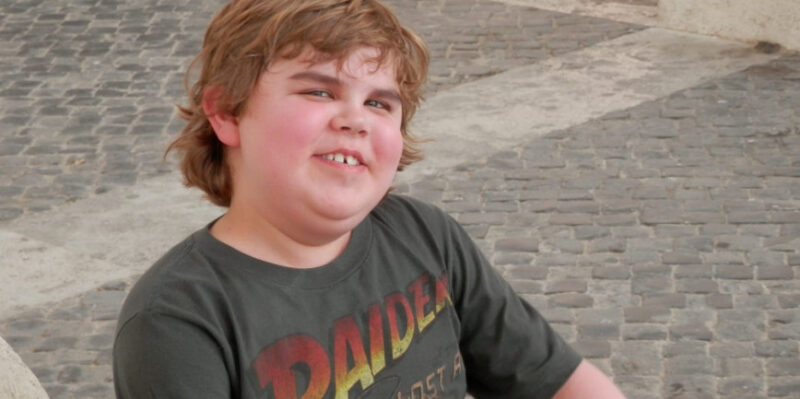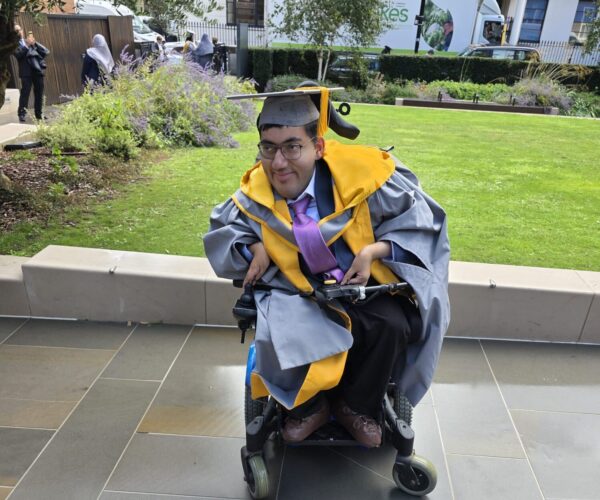Shelly Rodriguez is a Myasthenia Gravis Nurse Specialist at St George’s Hospital. In recognition of Myasthenia Gravis Awareness Month, she shares what led her to this role, how she supports patients, and what she’s learnt about managing the condition over the years.
My role as a Myasthenia Gravis Nurse Specialist

I’ve been a Myasthenia Gravis Nurse Specialist for three years now, but my journey in healthcare began 12 years ago. My background is in adult neurology nursing, and over time, I developed a particular interest in chronic condition management. That’s what led me to specialise in myasthenia gravis — a complex, often misunderstood condition that demands a unique and dedicated approach to care.
My role as a Myasthenia Gravis Nurse Specialist
My role is very varied and incredibly rewarding.
“I provide expert support and education to people living with myasthenia gravis, helping them understand their condition and treatments, monitoring their symptoms, and offering emotional and practical support along the way.”
I also coordinate care between patients and the wider healthcare team, such as consultant neurologists, physiotherapists and occupational therapists, to make sure our patients receive timely and holistic care. Most importantly, I’m a consistent point of contact; someone patients can turn to when they have questions, concerns, or simply need to talk.
My passion for nursing goes back to childhood. Growing up, I watched my mum survive stage three colorectal cancer. I knew I wanted to be there for people during their most vulnerable times. I’ve always been interested in oncology, urology, and neurology. Choosing to specialise in myasthenia gravis was driven by the rarity and complexity of the condition.
“Navigating it can feel overwhelming — not just medically, but emotionally and socially too. Being able to support patients through that journey felt like a way I could really make a difference.”
Supporting someone with myasthenia gravis involves more than just answering clinical questions. I help patients recognise symptom changes early, manage medication regimens, and adapt to daily life with a chronic condition. Sometimes, it’s as simple as sending health related reminders. Other times, it’s advocating for a patient who’s struggling to get the support they need. There’s no one-size-fits-all in this job — and that’s what makes it so interesting and deeply personal.
The rewards and challenges of my work
The most rewarding part is watching people grow in confidence as they learn to manage their condition, seeing how therapies can improve their quality of life, and knowing that my support has helped someone avoid a hospital admission or prevent a crisis. It’s those moments that stay with you.
Of course, it’s not always easy. Myasthenia gravis is unpredictable, and that can be incredibly frustrating for patients and their loved ones. Symptoms can change without warning, and therapies don’t always work the way we hope. It means we have to stay alert, flexible, and ready to adjust plans quickly. But even in the hardest moments, the relationships I build with patients and their families are what keep me grounded and motivated.
One of the most recent challenges is around access to treatment.
“Our myasthenia service here in St. Georges is saddened by the recent NICE decision not to recommend efgartigimod or Zilucoplan for routine NHS use. This is difficult news, especially for patients and clinicians who hoped for wider access to these treatments.”
Our myasthenia service here in St. Georges is saddened by the recent NICE decision not to recommend efgartigimod or Zilucoplan for routine NHS use. This is difficult news, especially for patients and clinicians who hoped for wider access to these treatments. However, we want to reassure our current patients who are already receiving these that they will continue to have access to the treatment as planned. Our commitment to patient care is unchanged and we will continue to support them in the highest standards of treatment and monitoring.
It’s so important there are specialist nurses for conditions like myasthenia gravis. Because it’s a rare disease, it often doesn’t get the recognition or resources it deserves. Having someone with specific knowledge and experience makes a huge difference in outcomes and in how supported patients feel. I’m lucky to work as part of the neuromuscular team at St George’s University Hospital in London, alongside dedicated consultants like Dr Pablo Garcia-Reitboeck. It’s a team that values learning, collaboration, and compassionate care.
What this role has taught me
Something I’ve learnt in this role is that learning never stops. Whether it’s keeping up with new therapies, understanding the latest research, or finding better ways to communicate with patients, this role constantly challenges me to grow.
The main thing I’ve learnt, though, is that living with myasthenia gravis can be tough, but with the right care and support, it’s absolutely possible to live a full, meaningful life. And as an Myasthenia Gravis Nurse Specialist, I’m proud to be part of that journey.


